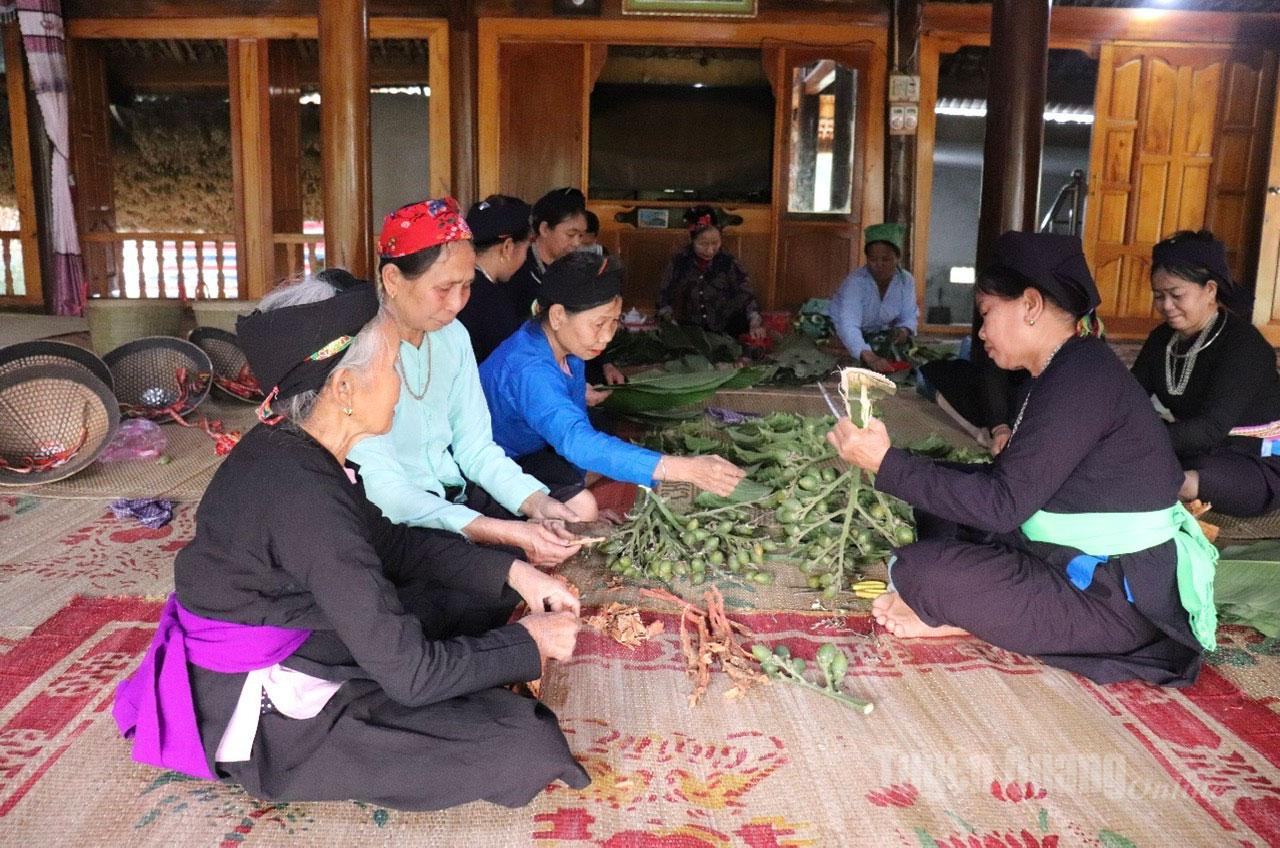 |
| The groom's family prepares betel and areca nuts to pick up the bride. |
Sacred song on the happy day of couples
According to Ms. Nguyen Thi Tuc, Chairwoman of the People's Committee of Bang Lang Commune, Tuyen Quang Province: Village singing has existed for a long time, has been passed down through many generations and still retains its original values. Village singing is a valuable intangible cultural heritage of our Tay people. In each wedding, singing not only expresses joy and happiness but also contains profound lessons about human morality and the affection that binds two families and clans. The recognition of village singing as a national intangible cultural heritage has affirmed the importance of the heritage and encouraged people to preserve and promote this unique value.
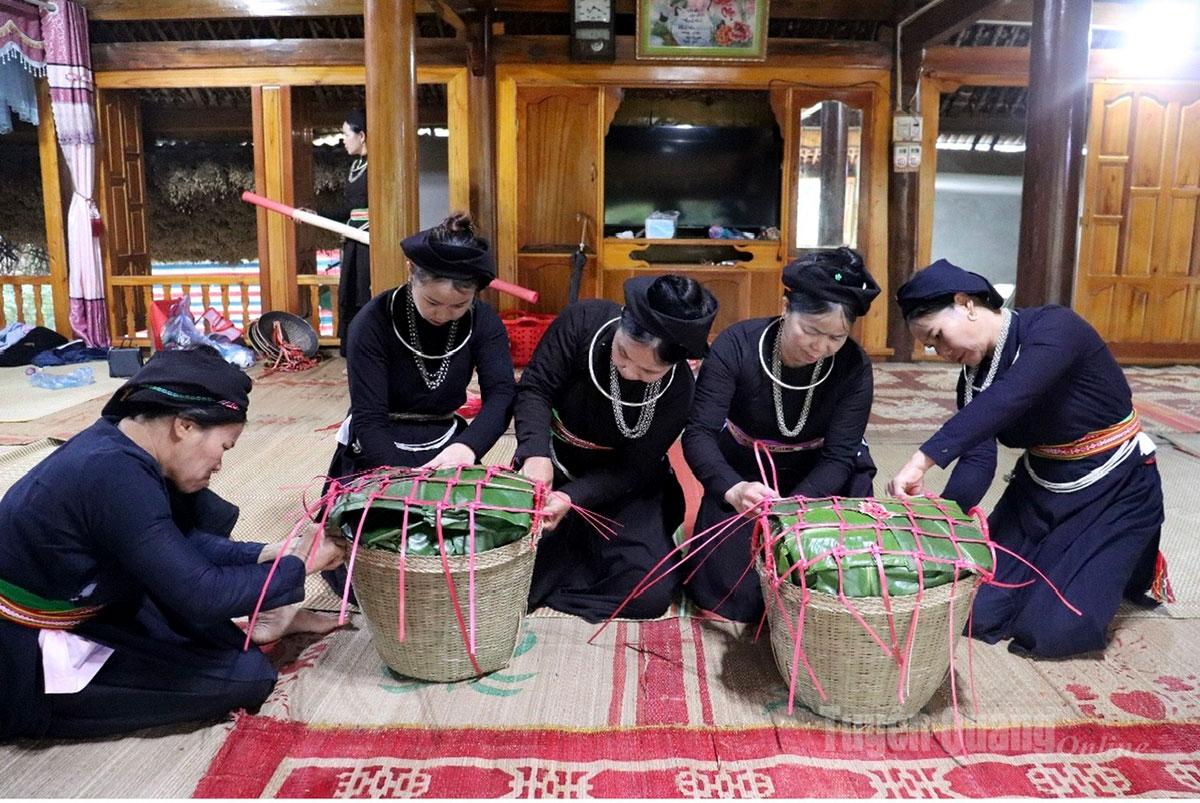 |
| Photo caption: The groom's family prepares gifts to bring to the bride's family. |
In the traditional wedding ceremony of the Tay people, the village mandarin's singing is divided into three main parts: welcoming, submitting and taking. When the groom's family comes to ask for the bride, the village mandarin - the representative of the groom's family - sings to ask for the gate to be opened, water to wash the feet, and to go up the stairs. Each verse is a skillful persuasion, both showing respect and testing improvisational skills. When arriving at the bride's house, the village mandarin sings to ask for the mat to be spread, water to be offered, betel and to introduce the gifts. The content of each song is rich in imagery, containing profound human values, praising the gratitude for giving birth, the harmony between husband and wife, and community affection.
One of the most touching rituals is the singing of the song “Nốp lầm khư” (wet and dry ceremony). The lầm khư cloth symbolizes the mother’s hard work in raising her daughter from birth until she grows up and gets married. When the groom’s family’s village official presents this cloth, the whole family is moved, because it is not only an item but also a deep gratitude to the parents. This is also the humane beauty that makes the Tay wedding special.
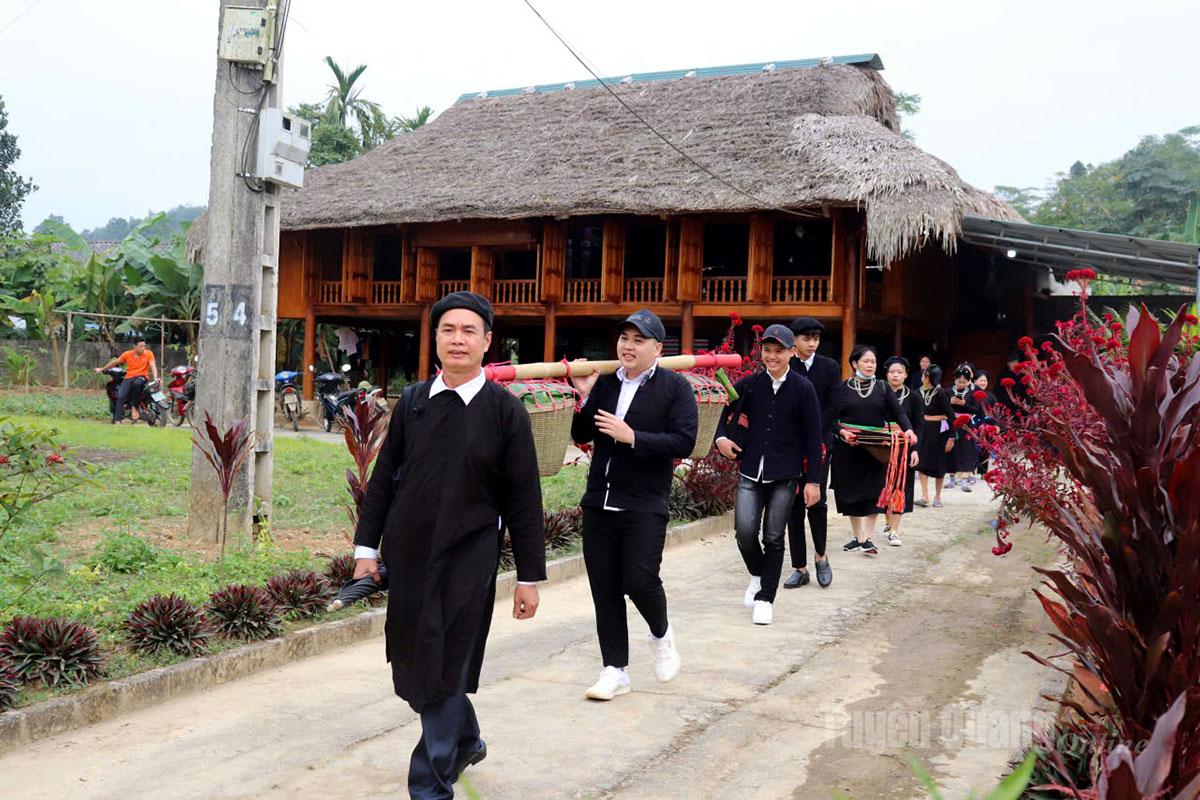 |
| Photo caption: The groom's family goes to the bride's house to pick up the bride. |
Preserving heritage amid modern life
In the context of an increasingly changing society, many traditional customs are at risk of being lost, but the Tay people in Bang Lang, Quang Binh, Tan Trinh, Yen Thanh, and Xuan Giang communes still preserve and teach the village folk singing from generation to generation. Currently, elderly artisans play an important role in teaching the younger generation, ensuring that the village folk singing is not forgotten.
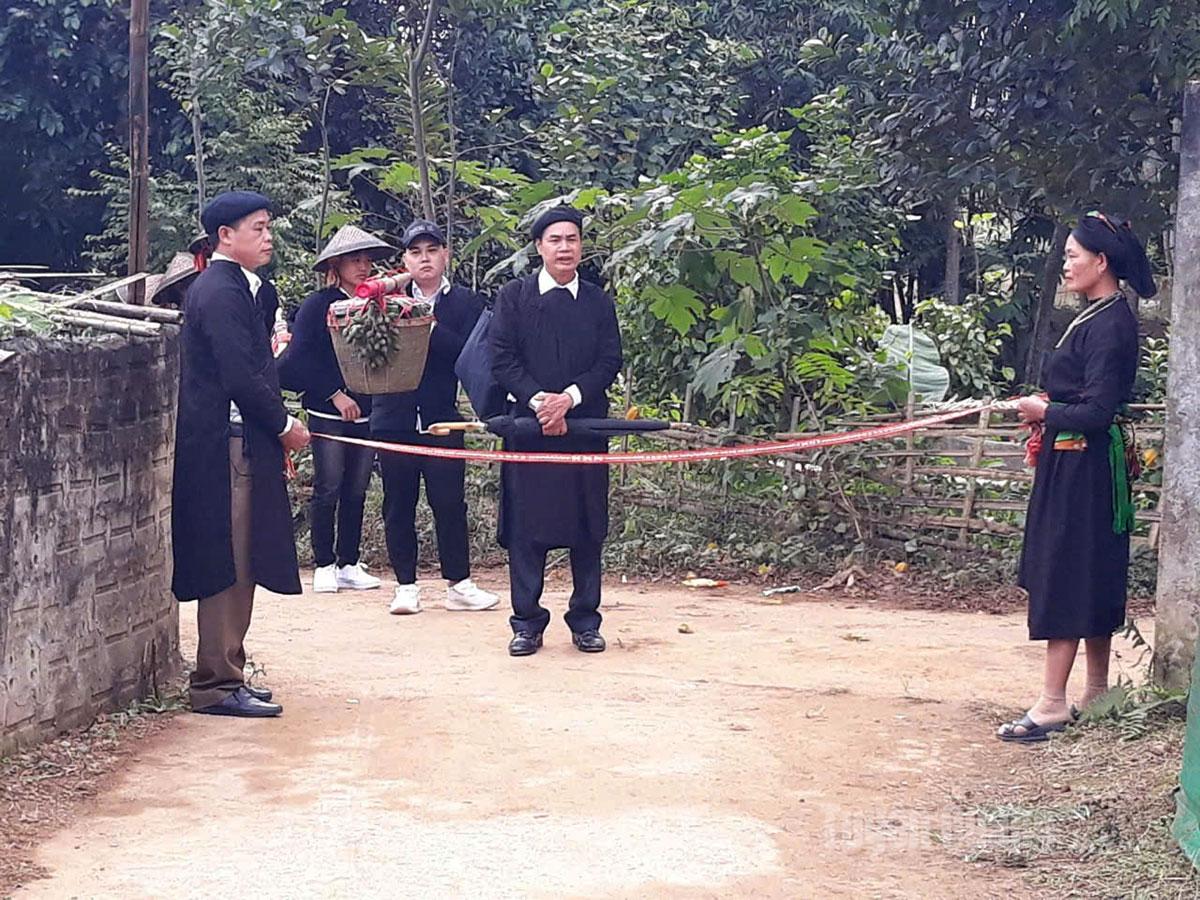 |
| The village official sang to ask to enter the girl's house. |
Artist Hoang Van Chua, Bang Lang commune - who has been involved in singing Quan Lang for more than 40 years, confided: "Singing Quan Lang is not only music but also a story about morality, about how people behave with each other. Each verse is the crystallization of knowledge and feelings of many generations. I always hope that the young generation will love and learn to preserve this traditional beauty." Mr. Chua also said that the commune has established a Quan Lang singing club, regularly organizing exchanges and performances at festivals, thereby arousing pride and responsibility in the community.
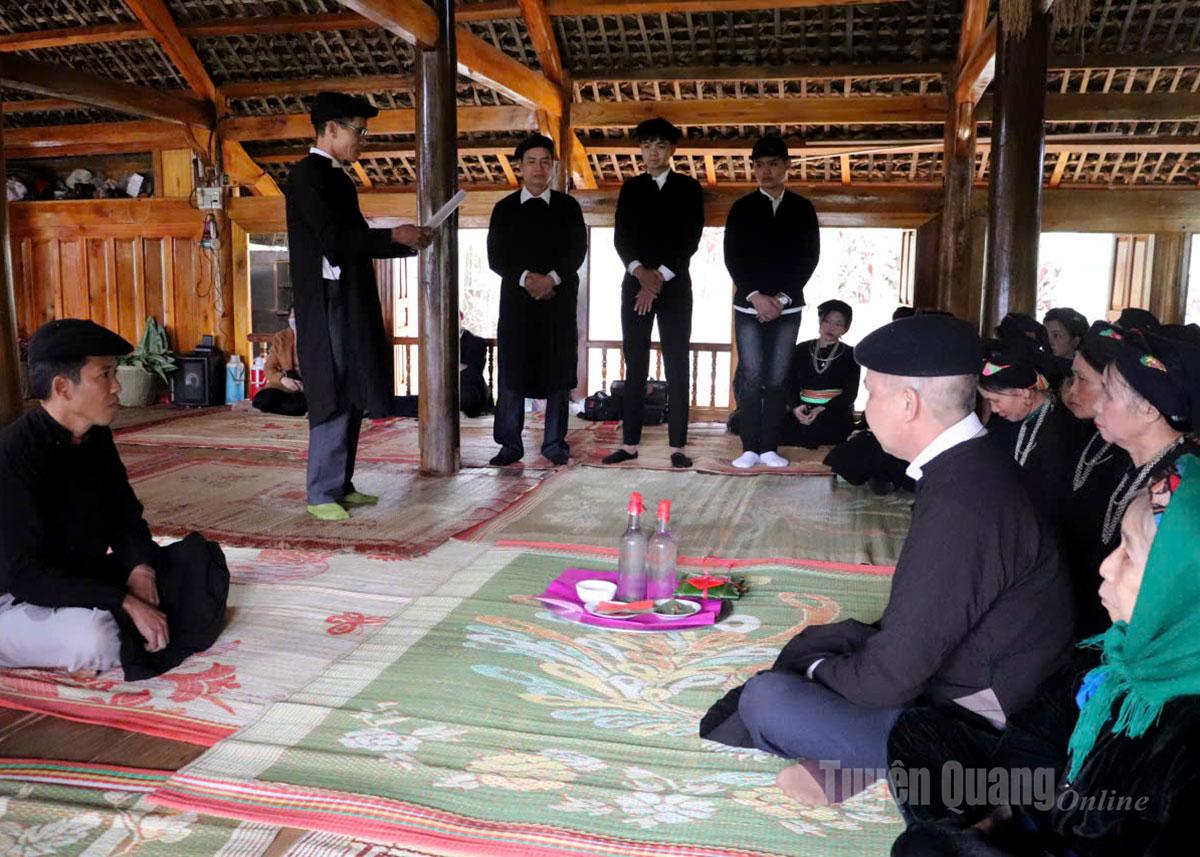 |
| The groom's troupe sang and asked the bride's family to let them sit. |
Thanks to the attention of the government and the efforts of the people, hat quan lang has not only existed in the scope of weddings but also appeared on stage, serving tourists and becoming a unique cultural product associated with tourism development. This contributes to spreading heritage, at the same time creating new livelihoods for the people in the highlands.
Tourist Nguyen Quoc Khanh from Hanoi shared his feelings after attending a Tay wedding: “I was very impressed with the singing of the village mandarin. All the rituals and lyrics were very solemn and meaningful, making me feel clearly the culture and humanity here. This is truly a valuable experience that I will remember forever.”
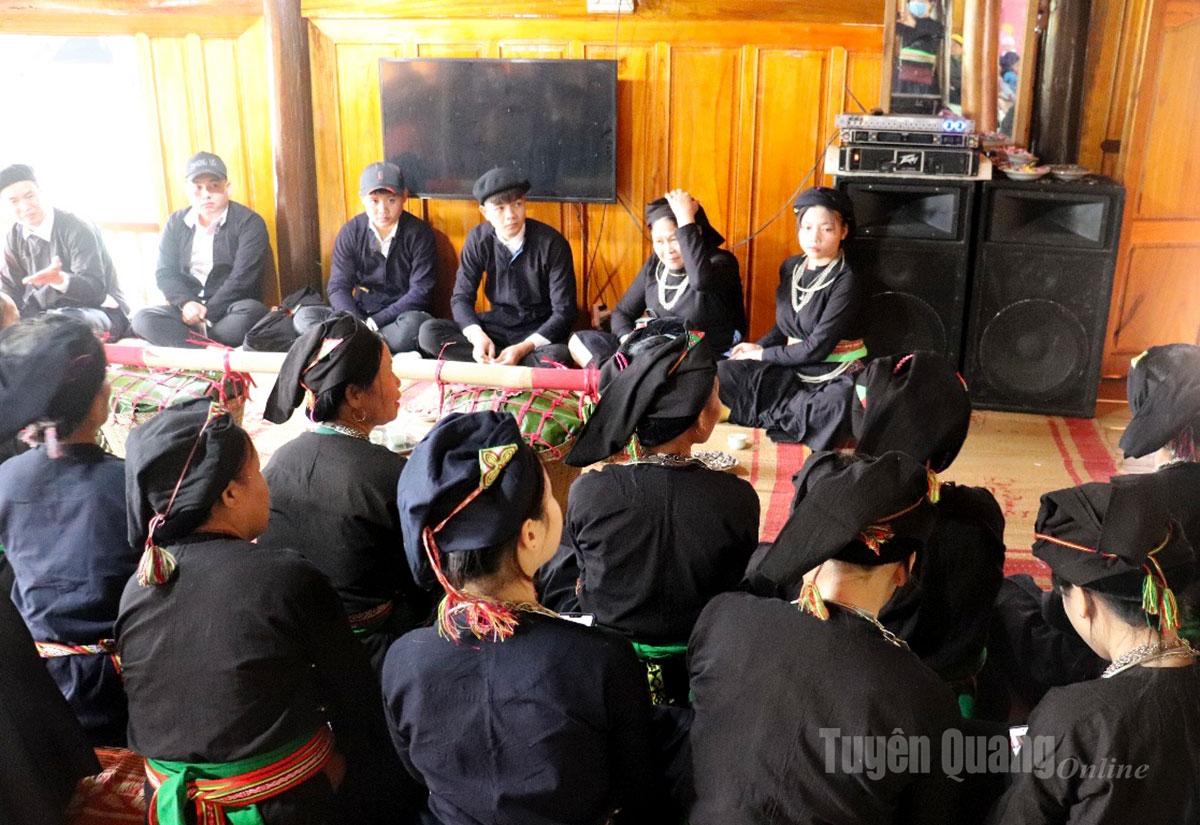 |
| The bride's family checks the gifts the groom's family brought to ask for the bride. |
Spreading values, towards the future
In 2023, Quan Lang singing was honored to be recognized by the Ministry of Culture, Sports and Tourism as a National Intangible Cultural Heritage. This is an important milestone, opening up new opportunities to preserve, maintain and promote the unique value of the heritage, making Quan Lang singing spread more strongly in the lives of Vietnamese ethnic communities.
To preserve the heritage over time, local authorities have been implementing many practical solutions: Organizing free teaching classes, encouraging folk art clubs to operate actively, and at the same time linking conservation with community tourism development. Festivals and cultural events are held regularly, creating a playground for artisans and people, and attracting tourists to the communes of Bang Lang, Quang Binh, Tan Trinh, Yen Thanh, Xuan Giang, Tien Yen, Tien Nguyen - lands rich in cultural identity of Tuyen Quang province.
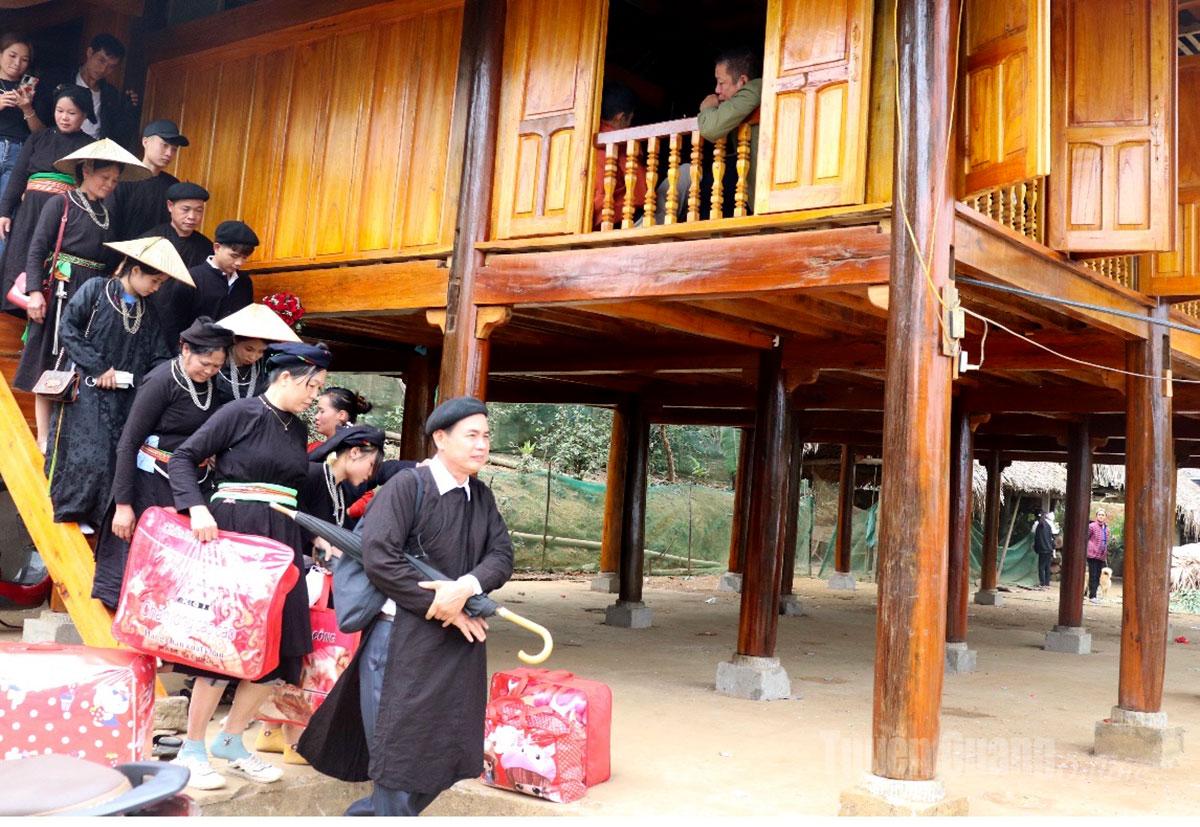 |
| The groom's family picked up the bride and brought her down to the groom's house. |
Ms. Nguyen Thi Tuc, Chairwoman of Bang Lang Commune People's Committee emphasized: "We determine that preserving Quan Lang singing is not only preserving an art form but also preserving the lifestyle, customs and practices of the Tay people. This is a long-term task, requiring the cooperation of the whole community and the support of all levels and sectors."
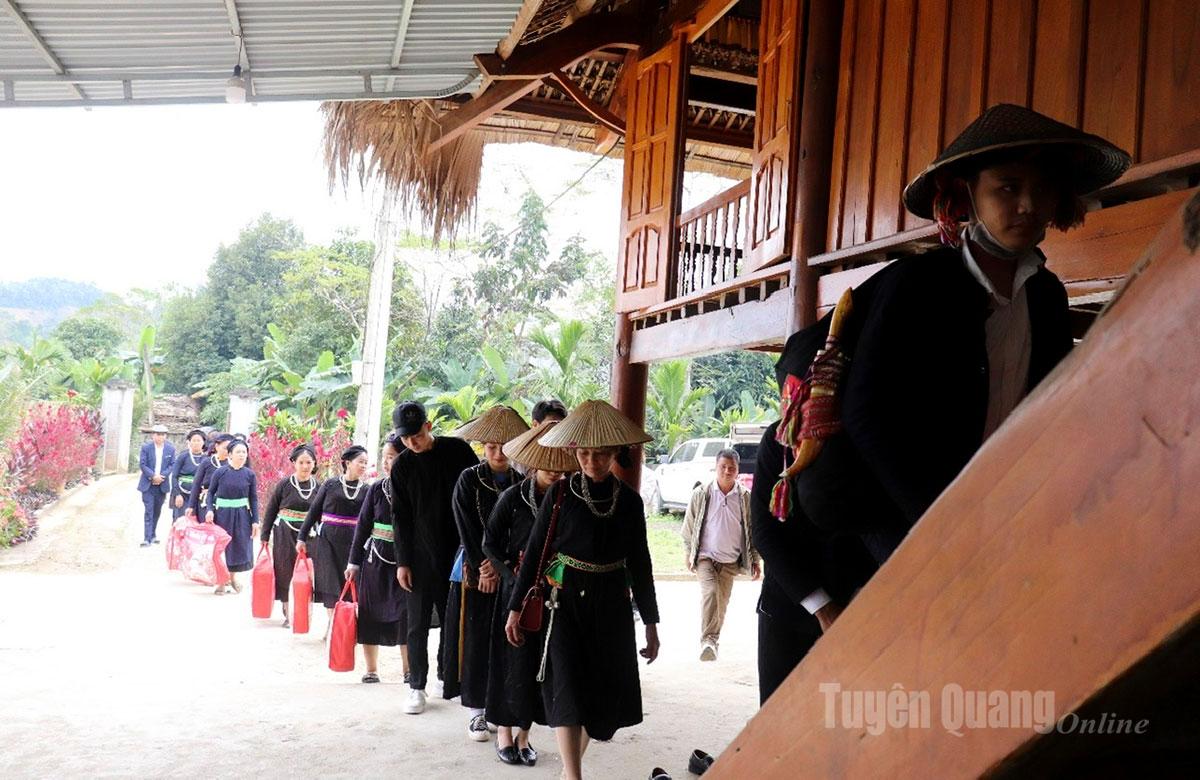 |
| The village chief and his entourage welcomed the groom to his house. |
With its profound historical, cultural, artistic and educational values, Quan Lang singing deserves to be respected and cherished. In the simple and sincere singing, we can feel the strong vitality of national culture, community cohesion and love for the homeland.
Article and photos: Duc Quy
Source: https://baotuyenquang.com.vn/van-hoa/du-lich/202509/ngan-vang-cau-hat-quan-lang-trong-ngay-vui-doi-lua-9c20335/




![[Photo] Thac Ba Lake: Towards an international-class tourism, resort and cultural center by 2040](https://vphoto.vietnam.vn/thumb/1200x675/vietnam/resource/IMAGE/2025/9/12/0940443efe0a427b88707caadba1cc41)


![[Photo] Where the history of resistance comes alive with modern technology at "95 years of the Party Flag lighting the way"](https://vphoto.vietnam.vn/thumb/1200x675/vietnam/resource/IMAGE/2025/9/12/81c1276f52b849c8b16e2d01dd1c85e4)





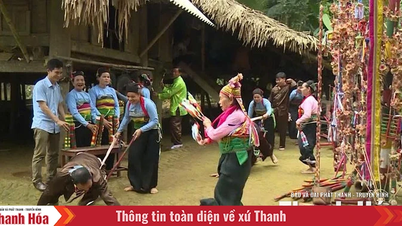











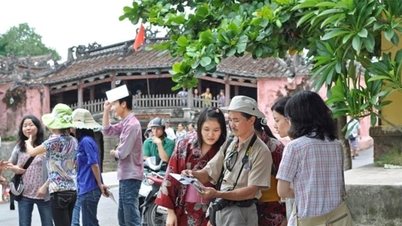





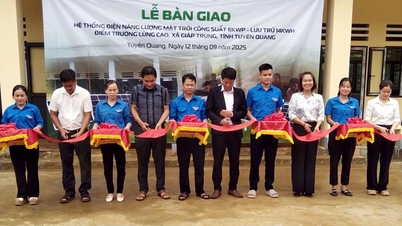


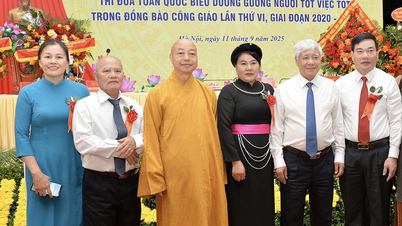
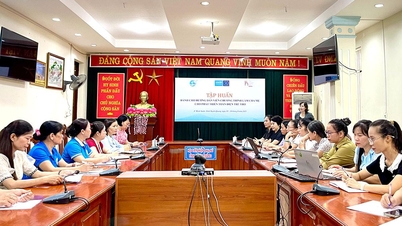







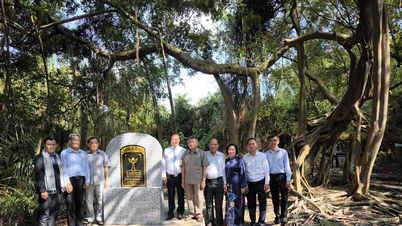


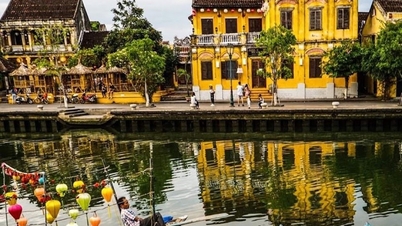



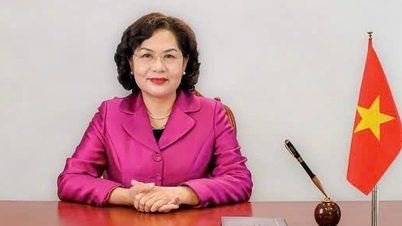











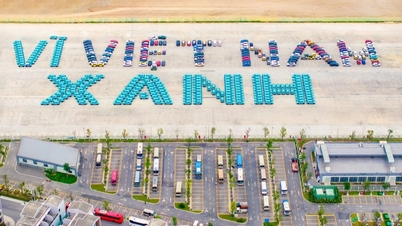
![[Maritime News] More than 60 containers fell off a cargo ship at Long Beach port (USA)](https://vphoto.vietnam.vn/thumb/402x226/vietnam/resource/IMAGE/2025/9/12/c091e4bb10e54291977aab80f5a41a9c)




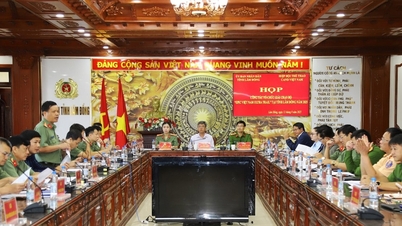



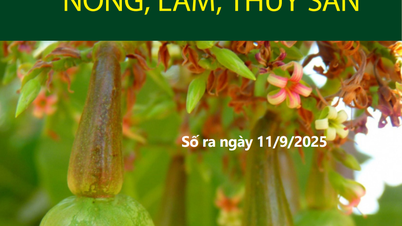














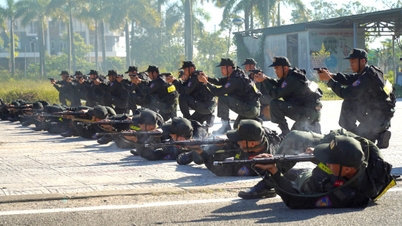













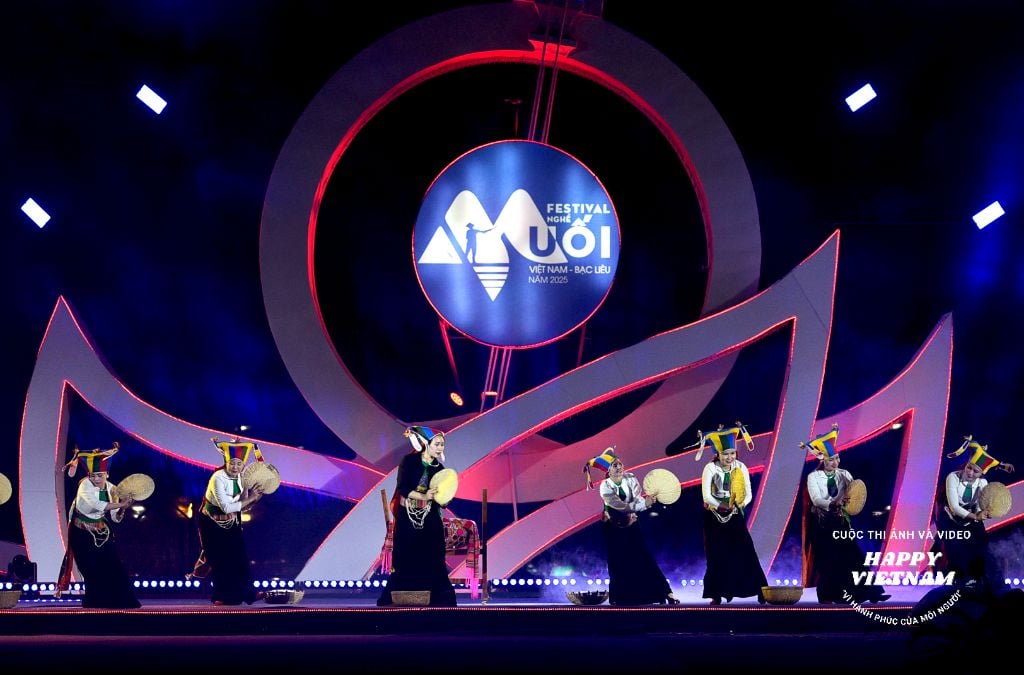



Comment (0)